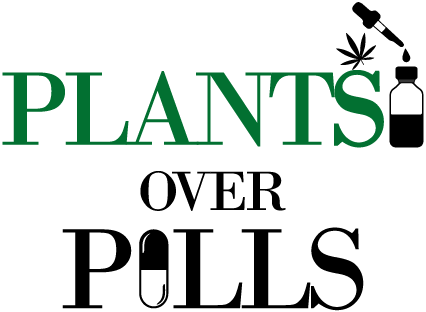Cannabidiol, or CBD, is a supplement that is often touted as something of a cure-all. It’s important to know CBD has the potential to interact with other medications. But which ones?
Be wary of any medication that has a grapefruit warning, because that means CBD can either intensify or nullify the effects. Drugs that should not be taken with CBD include:
- Blood thinners like Tylenol and Warfarin
- Alcohol
- Amiodarone
- Levothyroxine
- Seizure medications like Clobazam, Lamotrigine, and Valproate
- Theophylline
Fortunately, those prescription medications that can interact with CBD can be easily identified with a bit of research. In this guide, we’ll break down specific details about a variety of common medications as well as symptoms to look out for.
Does CBD interact with prescription drugs?
CBD often has a similar effect on medications as grapefruit juice, often either intensifying the effects of medications or weakening them when consumed at the same time.
This effect occurs because CBD is broken down by the same liver enzymes, the most prominent of which being CYP450 enzymes, as many common prescription and over the counter drugs. Since we only have a limited amount of these enzymes, if they’re all being used to break down CBD, the other drugs will not be broken down properly which may leave greater or lesser amounts of the drug to be absorbed into the bloodstream than the dosage intended.
This intensifying effect does not occur with all medications, but it can be potentially dangerous when interacting with drugs used to treat serious health conditions.
What medications should not be taken with CBD?
Before we go more in-depth, here is the short list of drugs that should not be taken with CBD.
While some individuals find they can and do mix these medications with CBD, you should be especially careful about the following:
- Valproate
- Warfarin
- Tylenol
- Alcohol (CBD can exacerbate the sedative effects of alcohol)
- Clobazam
- Theophylline
- Amiodarone
- Levothyroxine
Before combining any of those drugs with CBD, have a conversation with your doctor and find out if it’s alright for you. CBD may be relatively low-risk, but the medications and drugs mentioned above have a higher chance of causing negative side effects or other complications.
Now, we will explain each drug combination more in depth, and talk about how these chemicals will interact in your body.
Can I mix CBD oil and Zoloft?
As of right now, there are no known drug interactions between CBD and zoloft. So, yes, you can take CBD oil with Zoloft.
Below, we will go further in depth regarding Zoloft and other antidepressants in general.
Can you take CBD oil with antidepressants?
CBD oil and SSRIs (selective serotonin reuptake inhibitors), including Zoloft, should not have any major negative interactions, though the limited amount of data on drug interactions for CBD somewhat clouds the picture.
Hypothetically, CBD can interfere with the enzymes used to metabolize antidepressants like Zoloft in the same way that grapefruit juice can interact with those enzymes, as SSRIs are metabolized by CYP450 enzymes.
However, many clinicians believe that these interactions may be minimal in real life usage — doses of CBD are too low to have a significant impact on the efficacy of one’s antidepressants.
As with adding any new supplement to your routine, however, you should consult your doctor for advice on if CBD may have potentially negative interactions with the drugs you are prescribed.
Does CBD oil interact with anti-anxiety medications?
The answer to this question in particular can be a bit complicated, as there isn’t necessarily one set “type” of medication used solely to treat anxiety; oftentimes, medications that are helpful for other mental illnesses, including the SSRI’s discussed above, are also used to address anxiety symptoms.
Generally speaking, CBD oil is unlikely to interact with anti-anxiety medication in a way that causes negative side effects; in fact, one of the most common reasons people use CBD is to promote feelings of relaxation.
Of course, if you notice CBD oil contributing to the symptoms you’re hoping to treat – worsening your mood, lowering your energy, etc. – switching products, taking smaller doses, and consulting your doctor are all great options.
CBD oil and Xanax
Benzodiazepines like Xanax are also metabolized by CYP450 enzymes, and are liable to have some interactions with CBD. CBD’s inhibition of these enzymes may mean that a large amount of Xanax will enter your bloodstream, which can lead to an increased risk of addiction or suicidal thoughts.
Additionally, CBD’s sedative effect may increase feelings of drowsiness when taken alongside benzodiazepines. In this case, it’s especially key to consult a doctor if considering adding CBD to your list of supplements; the goal of using CBD is not to make your symptoms or medication side effects worse, after all.
Lamictal and CBD Interaction
Like antidepressants, antipsychotics such as Lamictal are metabolized by CYP450 enzymes, and may have small but still potential interactions that may decrease the efficacy of the drug.
Does CBD interfere with blood pressure medicine?
CBD has an anticoagulant effect. That means that it has a tendency to thin the blood in your body, lowering your blood pressure as a result.
Those who take prescription medications to manage blood pressure concerns, whether it be for high or low blood pressure, should exercise extra caution when using CBD.
Though it may not significantly impact all individuals, it’s still best to be mindful of how CBD can impact your blood pressure and other parts of your physical health as a result.
CBD Oil and Thyroid Medication Interaction
Thyroid medications, or those used to treat conditions that affect the thyroid in some way, can challenge CBD in terms of being metabolized by the body. This means that the effects of your prescription medication may be weaker, delayed, or otherwise impacted by CBD.
Thyroid medications vary in type, strength, and the risks associated with them. Be sure to speak with your doctor if you take or are planning to take these medications in order to avoid any potential adverse effects.
Can I mix CBD oil and alcohol?
CBD and alcohol do not seem to have any harmful interactions. You might, in fact, find upscale bars and restaurants hopping on the CBD trend by selling CBD-infused alcoholic cocktails.
Some evidence suggests that consuming CBD with alcohol can actually mitigate the harmful effects of alcohol on one’s liver cells, potentially indicating that CBD is a beneficial supplement to take before or after a night of drinking.
On the other hand, CBD and alcohol seem to potentiate each other’s sedative effects. The two substances can interact within 4 to 8 hours of one another, and they can intensify the lowering of inhibitions and heightened feelings of relaxation when used together.
While this may be helpful for some people who become antsy or aggressive when drunk, it can make you much more intoxicated than you might think you are, and can have a negative impact on memory, motor control, and a loss of inhibitions.
For some people CBD and alcohol may be a worthwhile pairing to try out, but as with using any new substance for the first time, be sure to start out with low doses and work your way up in order to see what impact the pairing will have on you.
Can I take CBD oil with melatonin?
Yes, you can take CBD oil with melatonin. The two do not have any major negative interactions, and they may actually potentiate one another.
In fact, taking CBD oil with melatonin has anecdotally been shown to aid with sleeping problems, making it easier for people who might suffer from insomnia to get to sleep and stay asleep.
Can you mix CBD and Tylenol?
You can take CBD with Tylenol, though taking them together will make them both less effective as they are both metabolized by CYP450 enzymes.
CBD and Ibuprofen Interaction
Tylenol is, however, a safer option than some other pain-relieving medication when taking CBD, as it is not recommended that you take blood-thinning medications like ibuprofen or warfarin while using CBD. The competition for CYP450 enzymes may leave excess amounts of blood thinner in the body, which can lead to increased bleeding problems.
Additionally, CBD can have mild anticoagulant effects, which can further thin blood to problematic levels for some individuals.
So, if you’re looking to manage pain while using CBD products, Tylenol is almost always the way to go. If you must take another pain-relieving medication, be aware of the risks outlined above; you may want to halt or discontinue your CBD use for the time being.
Does CBD oil interact with anti-inflammatory drugs?
The answer to this question can be muddy: it really depends on what sort of medication you’re taking to manage inflammation.
Some pain-relieving medications, including those mentioned above like Ibuprofen, can tackle inflammation in the body, but should be used carefully when CBD is involved. Nonsteroidal anti-inflammatory drugs (NSAIDs) are another common example.
Generally speaking, you shouldn’t have much to worry about in terms of CBD dampening the effects of your anti-inflammatory medication. In fact, CBD is a superstar when it comes to lessening inflammation and the pain that comes with it. Just be sure to consider any risks associated with blood pressure, blood thinning, and other similar concerns.
How can I avoid drug interactions?
If your medications come with a grapefruit warning, consider avoiding CBD, as this is an indication that this medication will need to be metabolized by CYP450 enzymes. Proceed with caution, and check with a doctor before starting a regimen.
Different products and dosages of CBD can mitigate or limit potential drug interactions. For instance, you may consider using CBD-infused topical medications, which does not enter the bloodstream but which may still provide the beneficial pain-relieving effects that you may be seeking from CBD.
Getting high-quality CBD products from reputable sellers is also quite important. Negative effects of CBD only become a serious threat if the CBD is mixed with other substances, which is why it is important to buy from trusted, well-reviewed sources. With our CBD directory, you can find a wide variety of CBD products, from topical creams, CBD isolates, gummies, oils, and more, for whatever your particular need or preference is, and you can feel confident in the quality of what you buy.










